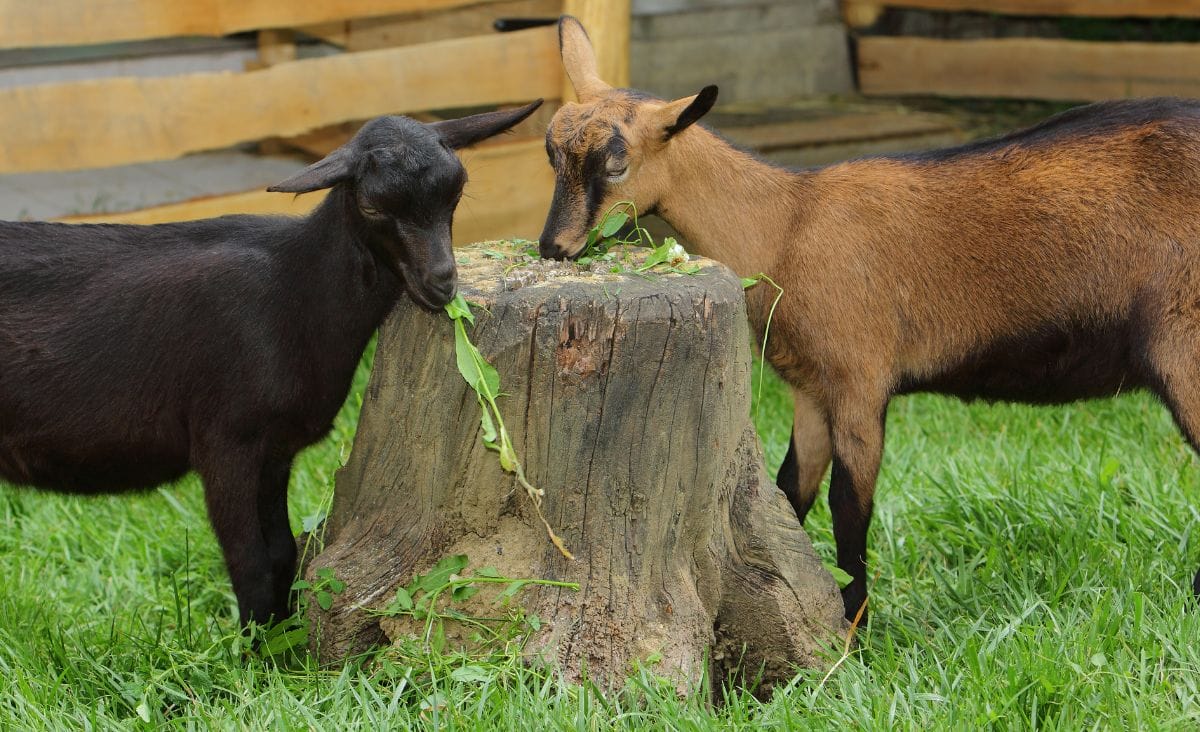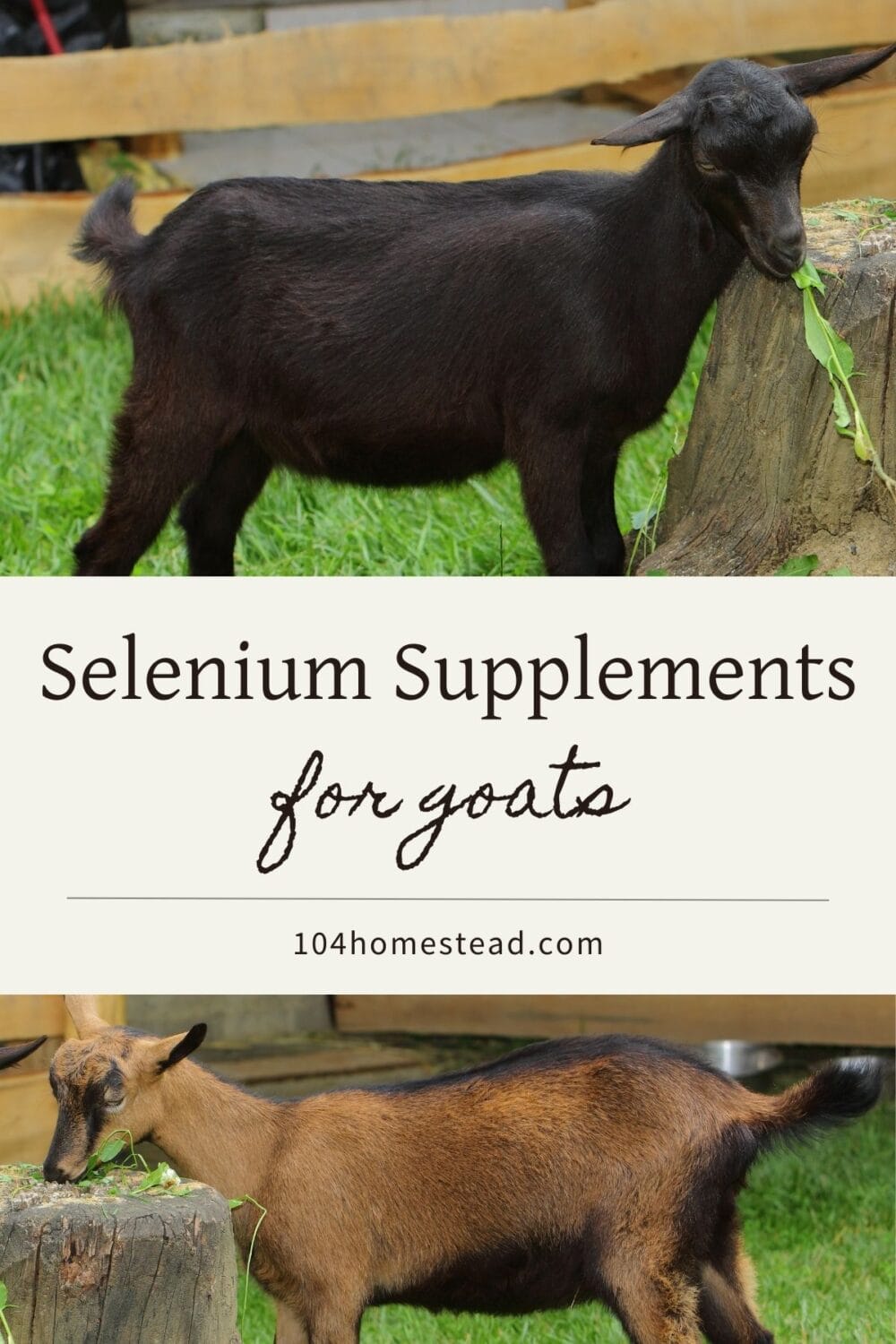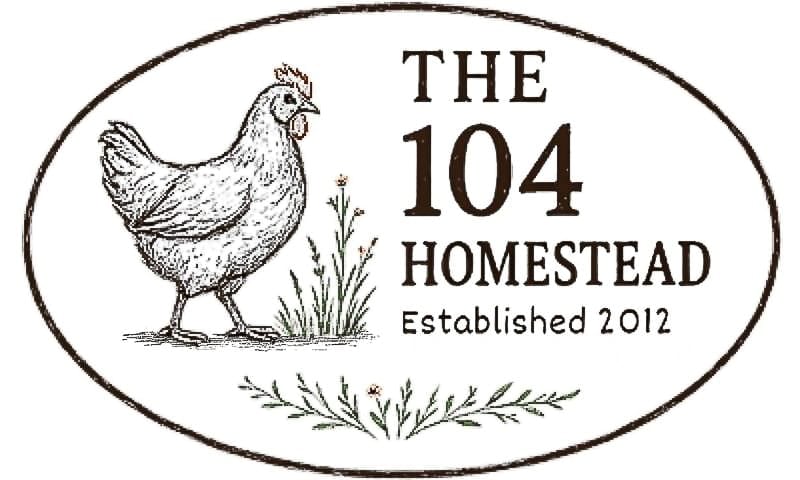A Guide to Selenium Supplements for Goats
Discover the role of selenium in goat health. From signs of deficiency to supplement options, learn to keep your herd thriving.

Understanding your goats’ nutritional needs is important for their health, and selenium is an important element that is often forgotten.
Here, you’ll learn everything you need to know about selenium for goats, including why it is important for them, how to tell if they do not have enough, and how to make sure they stay healthy and happy.
The Role of Selenium in Goat Health
Selenium, a trace mineral, is very important for goats’ health and well-being and plays many important roles in their lives.
Antioxidant Defense
Selenium is a powerful antioxidant that helps the body make enzymes that fight oxidative stress. These enzymes get rid of harmful free radicals and protect the goat’s cells from oxidative damage. This is an important part of keeping the goat healthy overall.
Immune System Support
For goats to have a strong immune system, they need to have enough selenium in their bodies. This trace mineral makes immune cells work better, which helps them fight off infections and diseases more effectively. Keeping selenium levels at the right level helps the goat’s natural defenses stay strong, so it can handle a wide range of health problems.
Muscle Development and Function
Selenium is an important mineral for muscle health because it helps make proteins that are needed for muscle growth and function. This mineral helps keep goats’ muscles strong and flexible by preventing diseases like white muscle disease, which is a myodegenerative disorder.
Signs of Selenium Deficiency
Paying close attention to these small signs will help you treat selenium deficiency quickly, which is important for the health and well-being of your goats on the homestead.
Poor Growth and Development
Poor growth and development, especially in young goat kids, is a subtle but important sign that they do not have enough selenium. If they do not get enough selenium, it can slow their growth, making them shorter and delaying important developmental milestones. Watch closely to see if your goat kids’ growth patterns show any signs of being behind schedule.
Muscle Weakness and Stiffness
Not getting enough selenium can result in muscle issues like stiffness and weakness. Goats that are affected may not want to move, have trouble with basic mobility, or walk in an odd way. Observing how mobile the goat is and noting any indications of muscle pain can help identify selenium deficiency.
Reproductive Issues
Selenium levels have a big effect on how well goats reproduce. Deficiency can cause problems with reproduction, like less fertility, more miscarriages, and problems during birth. If your goats are having trouble reproducing or having problems during kidding, you should look at their selenium levels as a possible cause.
Selenium-Rich Forage and Soil Testing
Providing selenium through forage and grazing may be enough to manage your herd.
Forage as a Selenium Contributor
For goats that eat a natural diet, forage is their main source of nutrients like selenium. As a result, the various plants the goat eats have an impact on the overall selenium content of its food. Legumes, like alfalfa and clover, store more selenium than some grasses, making them a better source for goats that graze on them.
Soil Testing for Selenium Availability
To make sure your goats stay healthy, you need to know how much selenium is in the areas where they graze. Doing tests on the soil helps figure out how much selenium is in it, which gives us important information about how much selenium might be available for forage. Selenium-poor soil can lead to forage that does not have enough selenium, which can affect the goat’s overall nutritional intake.

In the United States, the most selenium-deficient areas are the Northwest, Northeast, Atlantic coastal areas, Florida, and regions surrounding the Great Lakes.
Introducing Selenium Supplements
The way selenium supplements are given to the goats can affect how well they work. Make sure the goats get the right amount of herbal mix, oral gels, or injections.
Selenium and Vitamin E Gel
Goats can get selenium easily and directly through oral gels. These gel supplements are taken by mouth, which makes them easy to absorb. When you use Selenium and Vitamin E Gel, it is very important to follow the directions for dosage that come with the product.
BoSe Selenium Injection
BoSe injections are a common and effective way to treat goats that do not have enough selenium. BoSe is a prescription supplement that is injected into the muscle and contains selenium and vitamin E. It gives the muscle a concentrated dose. This targeted method makes sure that the selenium is quickly absorbed and spread throughout the goat’s body, effectively treating selenium deficiency.
Although it might look scary, giving your goat an injection is not as hard as you might think.
Herbal Mineral Mixes
Another good way to supplement the goat’s diet is to give it herbal mineral mixes that are high in selenium. You can usually find these mixes as loose herbal blends or treats that are made just for them. Ensure the herbal mix is specifically formulated for goats and contains selenium in the recommended amounts. We give herbs in custom made cookies that the goats love!
Dosage Considerations
Several things, like the goat’s weight, diet, and current selenium levels, affect how much selenium supplementation it should take. They have measuring tapes that can be used to figure out how much a dairy goat weighs.
Too much supplementation can cause selenium toxicity, which can cause serious health problems. Follow the directions carefully when giving supplements to goats, check their selenium levels often, and make any necessary changes.
Balancing Act: Selenium and Other Minerals
Selenium, copper, and vitamin E must be kept in a careful balance for goats to stay healthy. Although selenium is necessary, too much of it can be harmful, especially when combined with copper. Vitamin E is also important for getting the most out of selenium, which is why it is usually found in supplements with selenium. To avoid imbalances and promote overall health, make sure your goat’s diet includes all three elements in the right amounts.
Selenium Toxicity Awareness
Understanding the risks of selenium toxicity is paramount in goat care. While selenium is essential, excessive intake can lead to serious health issues. Signs of selenium toxicity include the following:
- Hair loss
- Lameness
- Hoof deformation
- Difficulty breathing
- Digestive issues
If you have any concerns, be sure to check with a livestock veterinarian.
Frequently Asked Questions
Here are the answers to questions my readers often ask me about selenium supplementation with their goats.
If you’ve found value in this blog post and enjoyed reading it, why not share it with your Pinterest community? Pin the image below and spread the love!

It is very important for your goats’ health and well-being that they get enough selenium. To keep goats in good health, you need to be aware of the subtle signs of selenium deficiency, feed them selenium-rich food, and supplement them wisely.
Have you faced challenges or successes in maintaining selenium balance in your goat herd? Share your experiences in the comments below.

I read that copper absorption is blocked by Selenium.. if they’re both in the same treat, won’t that be a problem?
Curious if you can give these things to a newborn goat? For selenium deficiency? I have nettles and burdock root on hand and probably some of the others, can I make a tea and give that to them?
Hi Jessica! Really, I like your blog! I was reading about your goats health supplements and deworming, it this the same treatments fot sheeps? Thank you for all your homesteads ideas!
Is this Kop-sel safe for pregnant does as well? Thanks
Looking at trying the Kop-Sel…how long will the 16oz size last if you give them the 1/4 tsp serving daily?
I have had the same bag since April with four goats and haven’t used it up yet. I’d say it lasts a pretty long time.